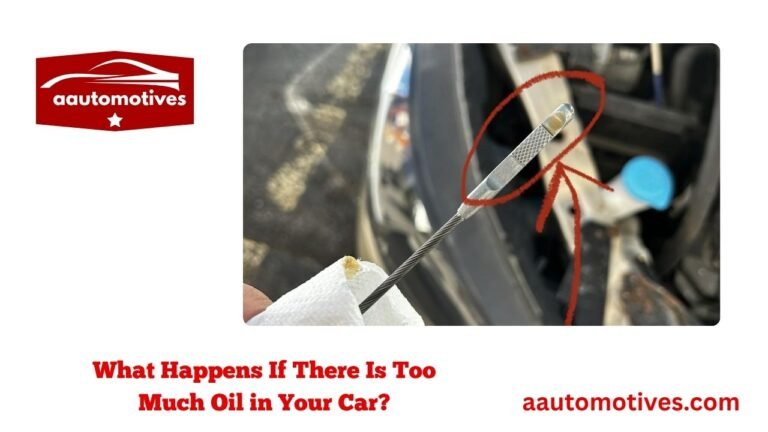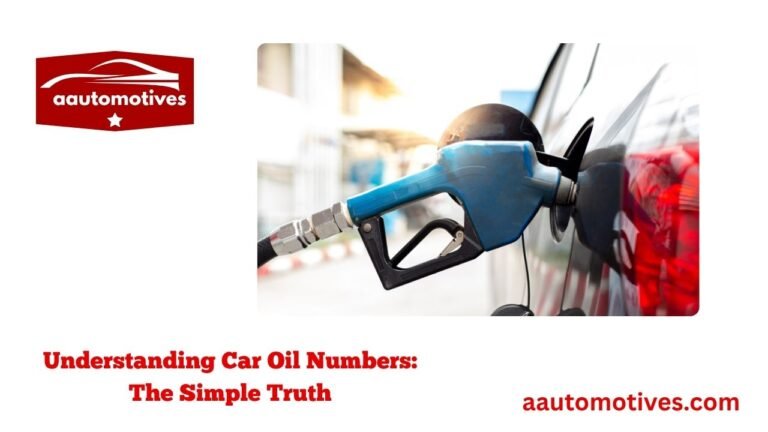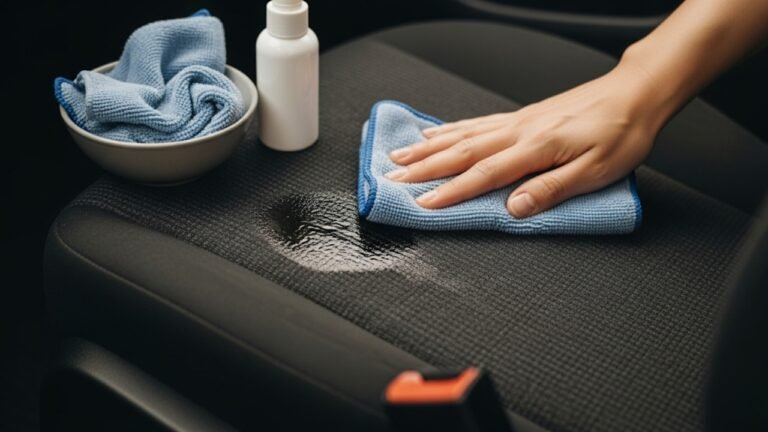Car Ran Out of Oil and Won’t Start?
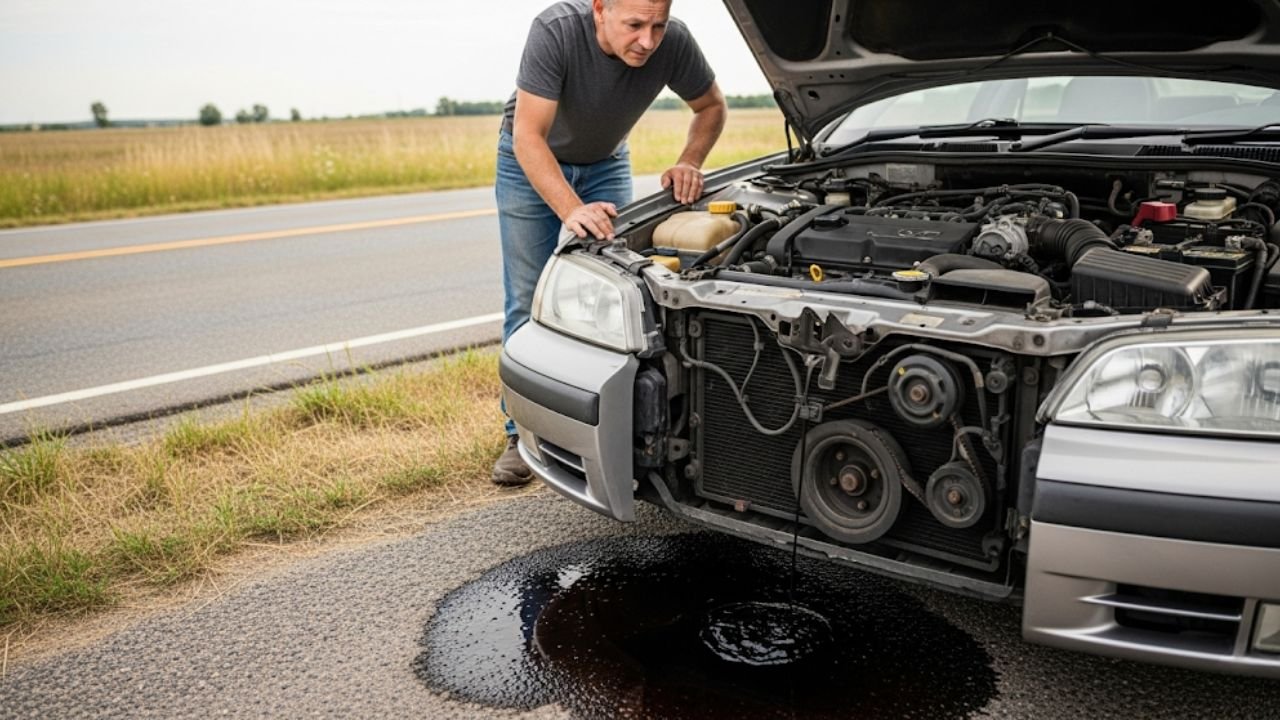
You’re cruising down the road, tunes on, windows cracked, and life’s feeling smooth. Suddenly, the engine chokes. It sputters, stalls—and then, silence. Panic kicks in. You try the key again. Nothing. You check the dash. No oil pressure. And that’s when the dread sinks in: your car ran out of oil and won’t start.
This is more than an inconvenience. It’s a big deal. I’ve been there. Trust me, the mix of frustration and fear is real. You’re not just dealing with a breakdown. You’re facing the real possibility of engine damage. But don’t worry. You’re not alone, and there’s a path forward. This guide breaks it all down—what happened, why it matters, and what you can do about it.
So, take a deep breath. Let’s figure this out together.
In This Article
- 1 What Happens When a Car Runs Out of Oil?
- 2 Why Did My Car Run Out of Oil?
- 3 Your Car Ran Out of Oil and Won’t Start – What Now?
- 4 Possible Damage If the Engine Is Dry
- 5 Can Adding Oil Fix It?
- 6 Is It Worth Fixing a Car That Ran Out of Oil?
- 7 Real Talk: My Car Ran Out of Oil—Here’s What I Did
- 8 How to Prevent Running Out of Oil in the First Place
- 9 How to Check Your Oil Like a Pro
- 10 When to Call a Mechanic (And When Not To)
- 11 FAQs: Everything You Need to Know
- 11.1 1. Can I just add oil to my car if it’s empty?
- 11.2 2. How far can you drive with no oil?
- 11.3 3. Will the engine light come on if oil is low?
- 11.4 4. Can an engine be saved after running out of oil?
- 11.5 5. What does a seized engine sound like?
- 11.6 6. Is replacing an engine worth it?
- 11.7 7. Will insurance cover engine failure from no oil?
- 12 Final Thoughts: Learn From This and Move Forward
What Happens When a Car Runs Out of Oil?
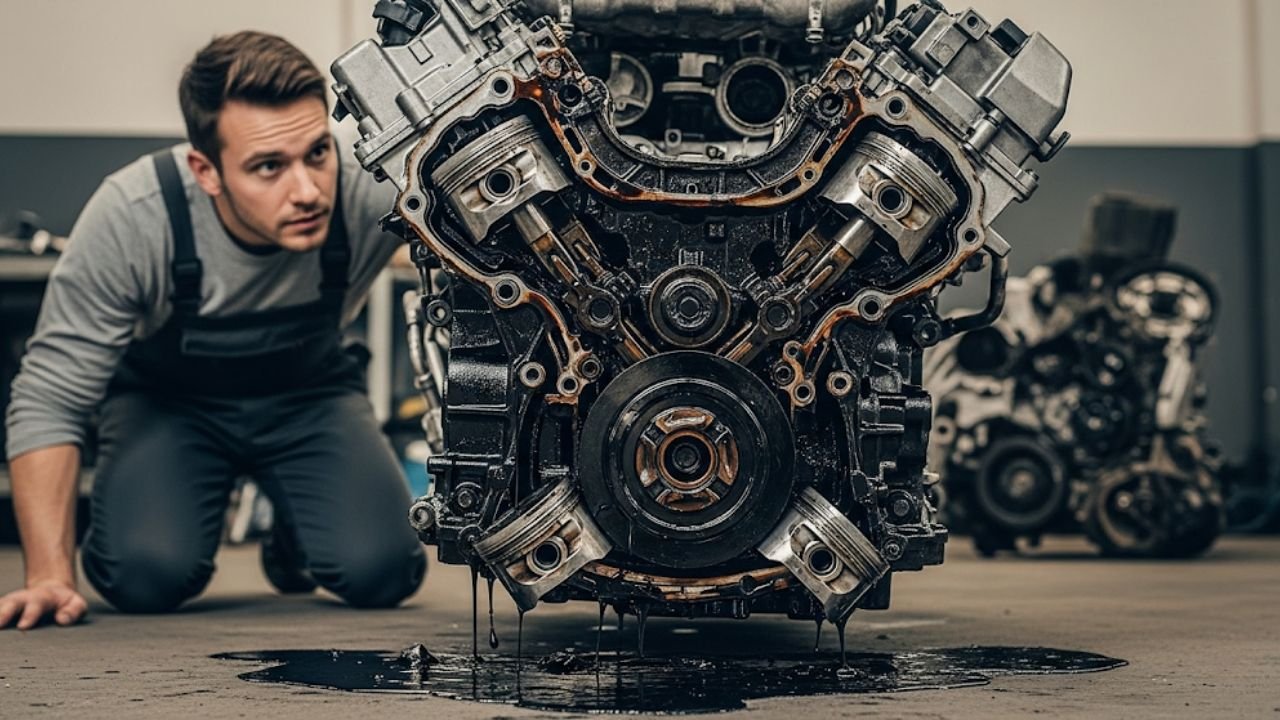
When your car runs out of oil, here’s what’s likely happening:
-
The oil pump sucks air instead of oil.
-
Friction increases as metal parts lack lubrication.
-
Overheating begins.
-
Engine components like pistons, camshafts, or crankshafts get damaged.
-
Eventually, your engine could seize entirely.
Once your car ran out of oil and won’t start, it’s a sign that damage may have already occurred.
Signs Your Engine Is in Trouble:
-
Clicking or knocking sounds
-
Smoke from the hood
-
Burning smell
-
The engine light or low oil warning on the dash
-
Engine completely shutting off
Running an engine dry is like cooking on high heat with no oil in the pan. Things will burn—and fast.
Why Did My Car Run Out of Oil?
It’s easy to beat yourself up when this happens, but take it easy. Even responsible drivers can miss oil issues. Cars can leak oil, burn oil internally, or have faulty sensors that don’t trigger the oil light.
Let’s break down some common reasons:
| Cause | Description | How to Spot It |
|---|---|---|
| Oil Leak | Oil escapes through gaskets, seals, or the drain plug | Puddles under car, burning smell |
| Burning Oil | Worn piston rings cause oil to burn in the engine | Blue smoke from exhaust |
| Faulty Oil Sensor | Dashboard doesn’t warn of low oil | Sudden failure without alert |
| Irregular Maintenance | Skipping oil changes or checks | Sludge build-up, oil starvation |
These aren’t just mechanical problems—they’re silent killers. Most of the time, drivers don’t even know they’re losing oil until the damage is done.
Your Car Ran Out of Oil and Won’t Start – What Now?
Okay, the worst has happened. Your car ran out of oil and won’t start. What next? Here’s your plan of attack. Stay calm and follow these steps.
✅ Step 1: Check the Oil Level
Grab a clean rag, pull the dipstick, and check. If it’s dry or below the safe zone, you’ve found the issue.
✅ Step 2: Look for Leaks
Check under the car. Any fresh puddles? Sticky residue? That’s your oil.
✅ Step 3: Try Adding Oil
Pour in the correct oil for your vehicle (usually 4–5 quarts). If the engine starts, you might’ve dodged major damage. But…
⚠️ If it still won’t start, serious engine damage is likely.
✅ Step 4: Don’t Keep Cranking
Repeated attempts to start a dry engine can make things worse. You could be grinding metal against metal.
Possible Damage If the Engine Is Dry
This is where things can get expensive. Running out of oil doesn’t just stall your engine—it can destroy it. Even a few seconds of oil starvation can warp or crack vital parts.
Common Damage That Occurs:
-
Seized pistons
-
Broken camshaft
-
Worn crankshaft bearings
-
Overheated cylinder walls
-
Warped engine head
Each of these issues could cost hundreds to thousands of dollars to repair. And in worst cases? You’ll need a complete engine replacement.
Can Adding Oil Fix It?
You might be hoping for a miracle fix. In some cases, yes—adding oil can get you running again. But that depends on how long the engine was dry.
Here’s a breakdown:
| Scenario | Can It Be Fixed by Adding Oil? |
|---|---|
| Low Oil, Not Empty | Often yes, especially if engine didn’t seize |
| Completely Dry, No Start | Probably not—damage likely occurred |
| Engine Makes Loud Knocking | Unlikely—internal components damaged |
| Engine Turns But Won’t Start | Depends—might be minor or catastrophic |
The reality? If your car ran out of oil and won’t start, you need a mechanic to inspect it. Even if it starts after adding oil, get it checked. You don’t want hidden damage turning into a major repair down the line.
Is It Worth Fixing a Car That Ran Out of Oil?
This is the tough part. Fixing an engine that’s been run dry isn’t always cheap. The decision depends on a few factors:
-
Age and value of your car
-
Cost of repairs
-
Availability of replacement engines
-
Your emotional attachment (yes, it matters!)
Quick Cost Guide:
| Damage Type | Estimated Cost |
|---|---|
| Minor Repairs (gaskets, oil pump) | $150 – $800 |
| Damaged Bearings or Pistons | $1,000 – $3,000 |
| Full Engine Rebuild | $2,500 – $4,500 |
| Engine Replacement | $4,000 – $7,000+ |
If your car is old or not worth much, it might be smarter to sell or scrap it. But if it’s a newer model, repairing it may still be a wise investment.
Real Talk: My Car Ran Out of Oil—Here’s What I Did
Let me share a quick story. A few years ago, my cousin called me in a panic. Her car ran out of oil and wouldn’t start. She hadn’t checked the oil in months. When the light finally came on, it was already too late.
We towed the car to a local shop. The mechanic confirmed a seized engine. It cost $3,200 to replace the motor. She cried. Honestly, it was a tough lesson, but one she never forgot.
Now she checks her oil every two weeks. A little routine can save you a lot of money—and stress.
How to Prevent Running Out of Oil in the First Place
We all want to avoid being stuck on the side of the road. The good news? Preventing this disaster is easier than you might think. It all comes down to building a few simple habits.
Here’s how to protect your engine and your wallet:
-
Check your oil every 2 weeks – It only takes 2 minutes and could save you thousands.
-
Get regular oil changes – Follow your car’s manual, but every 3,000 to 7,000 miles is a safe rule.
-
Watch for leaks – Puddles under your car? Don’t ignore them.
-
Pay attention to smells – A burning oil smell means something’s not right.
-
Don’t ignore warning lights – If the oil light comes on, stop driving immediately.
These habits are like brushing your teeth. Skip them, and you’ll pay the price later.
How to Check Your Oil Like a Pro
Most drivers never touch the dipstick. But checking your oil is easier than cooking instant noodles. Here’s a quick guide:
-
Park your car on level ground.
-
Turn off the engine and wait a few minutes.
-
Pop the hood and find the dipstick—it usually has a yellow or orange handle.
-
Pull it out and wipe it clean with a cloth or paper towel.
-
Reinsert the dipstick, then pull it out again.
-
Check the oil level—it should fall between the two marks.
-
If it’s low, top it off with the correct oil for your car.
That’s it. Seriously. Two minutes of your time, once a week, and you’ll never have to say: “My car ran out of oil and won’t start” again.
When to Call a Mechanic (And When Not To)
Sometimes, you can fix minor car issues at home. But running out of oil is not one of those times. If your engine won’t start after adding oil, call a mechanic right away.
Call a mechanic if:
-
The engine won’t turn over
-
You hear knocking, ticking, or grinding
-
Smoke is coming from the hood
-
You’re unsure what type of oil to add
-
There’s no oil pressure after topping off
You can DIY if:
-
Oil was low but not empty
-
The engine starts normally after adding oil
-
You’re only a bit overdue for an oil change
-
There’s no smell, noise, or performance issue
Always trust your gut. If it feels serious, it probably is.
FAQs: Everything You Need to Know
1. Can I just add oil to my car if it’s empty?
If your car ran out of oil and won’t start, adding oil might help—but only if there’s no internal damage. If the engine seized, adding oil won’t fix the problem. Have a mechanic inspect it.
2. How far can you drive with no oil?
Not far. Most engines can only run for 30 seconds to 1 minute without oil before damage starts. Driving without oil is like running barefoot on hot pavement—painful and dangerous.
3. Will the engine light come on if oil is low?
Sometimes. But many oil lights only turn on when pressure drops to critical levels. That’s often too late. Always check the oil manually.
4. Can an engine be saved after running out of oil?
In some cases, yes—if you shut it off quickly. If it was driven too long without oil, the engine could be permanently damaged.
5. What does a seized engine sound like?
Usually, it makes a loud clunk, followed by silence. Sometimes you’ll hear clicking or grinding, but often, it just refuses to turn at all.
6. Is replacing an engine worth it?
It depends. If the rest of your car is in great shape and the engine is the only problem, replacing it might make sense. But for older cars, it could be better to move on.
7. Will insurance cover engine failure from no oil?
Unfortunately, no. Neglecting oil maintenance is considered owner error, and insurance doesn’t cover it. However, some extended warranties might help—read the fine print.
Final Thoughts: Learn From This and Move Forward
If your car ran out of oil and won’t start, you’re probably feeling overwhelmed. That’s normal. But you’re not alone. Many drivers have made this mistake—including some of the most careful ones. Engines are tough, but even they have limits.
The key is to learn from this moment.
-
Start checking your oil.
-
Keep a spare quart in your trunk.
-
Set a reminder for oil changes.
-
And when something feels off—trust your instincts.
Cars are like relationships. They need attention, love, and a little maintenance. Ignore the warning signs, and things break. But take care of them, and they’ll carry you through life’s journeys—mile after mile.
So don’t beat yourself up. Use this experience to become a more confident, aware driver. Because knowledge is power. And now, you’ve got it.



